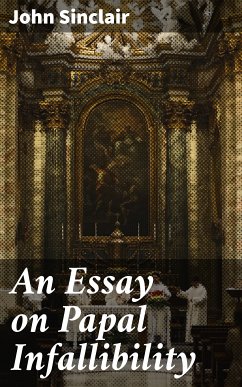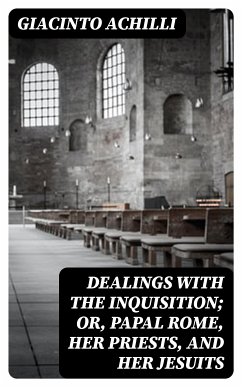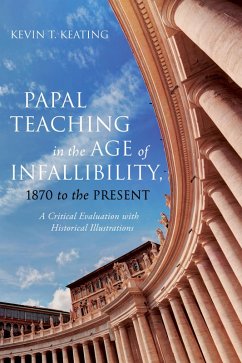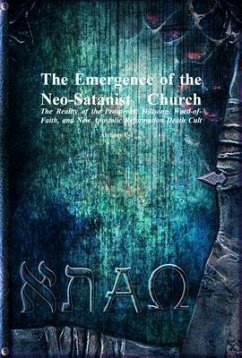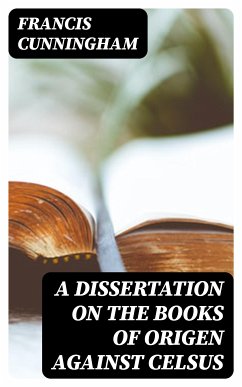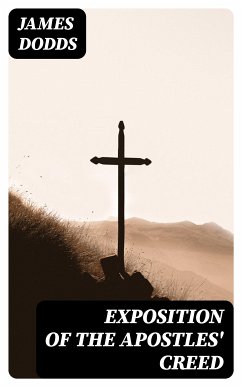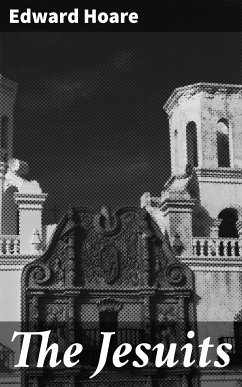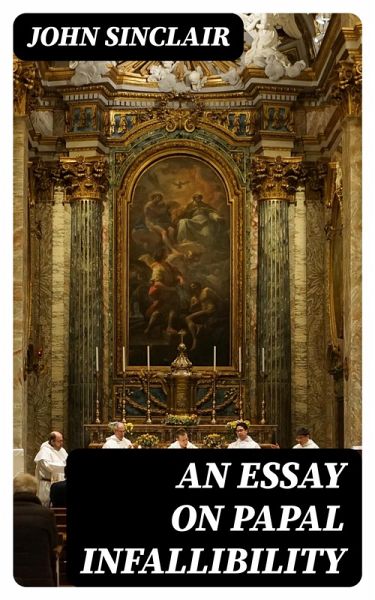
An Essay on Papal Infallibility (eBook, ePUB)
Versandkostenfrei!
Sofort per Download lieferbar
1,99 €
inkl. MwSt.
Weitere Ausgaben:

PAYBACK Punkte
0 °P sammeln!
In 'An Essay on Papal Infallibility,' John Sinclair presents a rigorous examination of the doctrine asserting that the Pope is incapable of error when proclaiming dogma regarding faith and morals. Sinclair employs a critical, analytical literary style that blends historical context with theological discussion, elucidating the implications of papal authority within the Catholic Church and its consequences for ecclesiastical governance. The essay situates itself amidst the intense debates of the 19th century, especially during the First Vatican Council, where this doctrine was formally defined, ...
In 'An Essay on Papal Infallibility,' John Sinclair presents a rigorous examination of the doctrine asserting that the Pope is incapable of error when proclaiming dogma regarding faith and morals. Sinclair employs a critical, analytical literary style that blends historical context with theological discussion, elucidating the implications of papal authority within the Catholic Church and its consequences for ecclesiastical governance. The essay situates itself amidst the intense debates of the 19th century, especially during the First Vatican Council, where this doctrine was formally defined, thus presenting a compelling synthesis of faith, reason, and authority. John Sinclair, a prominent theologian and ecclesiastical scholar of his time, brings a wealth of knowledge and personal conviction to this work. His experiences within the Catholic Church and engagement with evolving religious thought during a period marked by modern skepticism and liberal theology inform his perspective, as he seeks to reconcile traditional beliefs with contemporary challenges. Sinclair's erudition and well-articulated arguments reflect both his commitment to Catholic doctrine and a desire for intellectual rigor in the face of modernity. This essay is highly recommended for scholars, theologians, and lay readers alike who wish to deepen their understanding of papal authority and its relevance in the contemporary world. Sinclair's thoughtful exploration invites readers to reflect critically on the intersections of faith, authority, and morality, making it an essential read for anyone interested in the complexities of religious doctrine.
Dieser Download kann aus rechtlichen Gründen nur mit Rechnungsadresse in A, B, BG, CY, CZ, D, DK, EW, E, FIN, F, GR, H, IRL, I, LT, L, LR, M, NL, PL, P, R, S, SLO, SK ausgeliefert werden.




